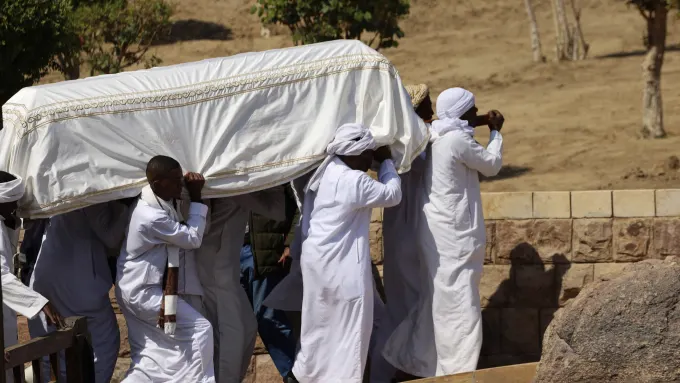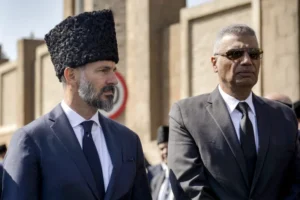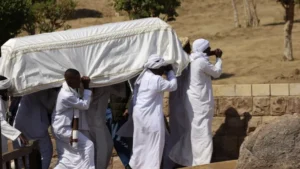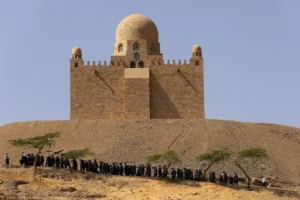Introduction
The legacy of the Aga Khan, the 49th Imam of the Shia Ismaili Muslims, is characterized by a remarkable blend of spiritual leadership and humanitarian efforts. His life’s work has had a significant impact on various communities globally, advocating for social justice, education, healthcare, and sustainable development. The Aga Khan’s passing serves as a poignant reminder of the profound influence he had on millions, as well as the mission he upheld for over six decades.
As a visionary leader, the Aga Khan tirelessly promoted human dignity and the essential role of ethics in governance and community development. His emphasis on education as a foundational pillar for empowerment transformed countless lives. The Aga Khan Development Network (AKDN), established under his guidance, has developed numerous programs that advance advances in healthcare, education, and economic development across underprivileged areas. Through AKDN, he spearheaded initiatives that improved access to quality education and health services while fostering sustainable economic practices in various regions, particularly in Africa and Asia.
Beyond his philanthropic efforts, the Aga Khan served as a beacon of hope and inspiration for millions. He encouraged interfaith dialogue, cultural pluralism, and respect for diversity, promoting harmony among different communities. His tireless advocacy for the rights of marginalized groups underscored his commitment to fostering social cohesion and development. The impact of his leadership is felt not only within the Ismaili community but also far beyond its bounds, illustrating the universal relevance of his teachings and values.
In reflecting upon the life and contributions of the Aga Khan, it is essential to recognize the indelible mark he left on the world through his dedication to bettering the lives of others. His passing invites a collective remembrance of the ideals he championed and the legacy he leaves behind.
The Procession: Remembering the Aga Khan’s Final Journey
The funeral procession for the Aga Khan unfolded with a deep sense of reverence and collective mourning. Held in Egypt, a location of profound significance to the Ismaili community, it allowed attendees to connect deeply with the cultural and historical context surrounding the Aga Khan. The procession began with a gathering of community members, dignitaries, and family, emphasizing the unity and strength of the community during this solemn occasion.
As the procession made its way through the streets, participants expressed their sadness and resilience. Attendees shared personal anecdotes about the Aga Khan’s impact on their lives, underscoring his role as a leader and spiritual guide. The atmosphere was charged with emotion, reflecting the profound loss felt by many. Community leaders spoke about the legacy left behind by the Aga Khan, emphasizing his philanthropic efforts and commitment to social development, which resonate deeply within the Ismaili faith and beyond.
The funeral rites incorporated several cultural and religious practices that highlighted the dignity of the occasion. These included the recitation of prayers, the offering of condolences, and moments of reflection, showcasing the Ismaili community’s deep connection to their spiritual heritage. The choice of Egypt as the location for the funeral was particularly poignant, as it is a place intertwined with the history of the Ismaili community. Symbolically, this location reinforced the Aga Khan’s ties to heritage and the continuity of leadership.
Throughout the procession, attendees exhibited a sense of collective respect and honor towards their leader. These moments are crucial in preserving the legacy of the Aga Khan, who exemplified love, service, and humility in his lifetime. This final journey served as a powerful testament to his enduring influence on the Ismaili community and the world at large.
Impact on Global Communities: A Lifelong Commitment
The Aga Khan’s commitment to improving global communities is evident through the various initiatives spearheaded by the Aga Khan Development Network (AKDN). His approach centered around pluralism, social justice, and environmental sustainability, addressing the multifaceted challenges faced by communities, particularly in developing regions. The AKDN operates in over 30 countries, undertaking projects that range from healthcare and education to economic development and cultural preservation.
One remarkable initiative is the establishment of the Aga Khan Health Services, which has significantly enhanced healthcare access in rural and urban areas. By building hospitals and health centers, and providing training for healthcare professionals, the foundation has improved maternal and child health, thus reducing mortality rates in regions that previously lacked adequate medical care. Beneficiaries have often shared heartfelt accounts of how these facilities have positively transformed their lives. For instance, local mothers have spoken about the importance of having skilled medical personnel available during childbirth, citing increases in survival rates for both mothers and infants.
Equally notable is the educational outreach of the AKDN. Through the Aga Khan Academies, the network has cultivated an environment where students are not only educated in academic subjects but are also immersed in the values of ethics and leadership. This holistic approach has empowered young individuals to become active and informed citizens. Testimonials from alumni reveal how their experiences at the Academies have shaped them, fostering resilience and nurturing a sense of responsibility toward their communities.
Furthermore, the emphasis on sustainable development is integral to the Aga Khan’s legacy. By promoting environmental stewardship and utilizing local resources, the AKDN has facilitated projects that address climate change while also preserving cultural heritage. In regions vulnerable to environmental degradation, these initiatives have created sustainable livelihoods, offering communities a pathway towards self-sufficiency.
Through these diverse projects, the Aga Khan’s lifelong commitment to fostering resilience and improving lives is profoundly evident, marking a lasting impact on numerous global communities.
Remembering a Legacy: Reflections from the Community
The legacy of the Aga Khan is deeply embedded within the hearts of his followers, community leaders, and all those influenced by his vision of pluralism, progress, and humanitarianism. Many individuals recounted personal anecdotes that highlighted how the Aga Khan’s teachings have provided a valuable framework for navigating the complexities of modern life. His unwavering commitment to improving the well-being of individuals and communities resonated with a broad audience, transcending cultural and geographical boundaries.
Community members shared stories of empowerment and transformation, often citing the Aga Khan’s focus on education and community development as pivotal to their personal and collective growth. These narratives illustrated not only a sense of loss but also a strong conviction that his vision continues to inspire action and unity. For some, the Aga Khan served as a beacon of hope, guiding them through challenges and motivating them to embody the principles of service and compassion that he championed.
Furthermore, discussions surrounding plans to honor his legacy are currently underway. Initiatives that reflect his teachings are being launched across various sectors, including education, healthcare, and environmental conservation. Projects like the Aga Khan Development Network continue to pursue the mission of alleviating poverty and promoting sustainable development. Community engagement is crucial in these initiatives, ensuring that they reflect the diverse needs of the people they are designed to serve.
As individuals and organizations come together to celebrate the life and work of the Aga Khan, there is a shared understanding that the legacy he leaves behind is not merely a memory but a call to action. His example encourages ongoing commitment to fostering understanding, tolerance, and respect among diverse communities. The collective efforts to carry forward his vision of a better world exemplify how his influence will remain vibrant, guiding future generations toward a shared goal of humanity’s advancement.




